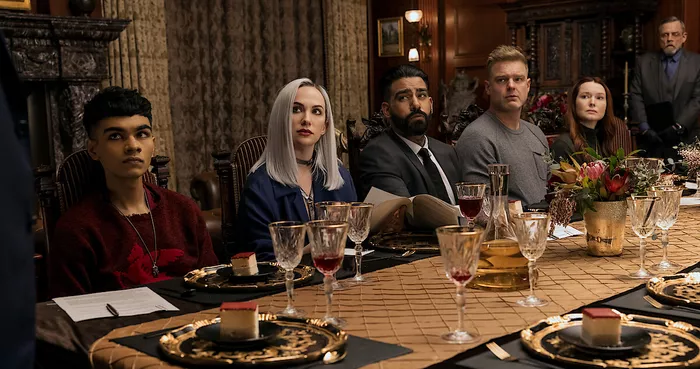Within the confines of Edgar Allan Poe’s haunting narrative, ‘The Fall of the House of Usher,’ lies a poignant tale of familial anguish and the intricacies of human decisions. Central to this narrative is the enigmatic character of Madeline, whose deliberate choice not to have children sheds light on the complex interplay of self-preservation and empathy. Her decision, juxtaposed against the callousness of her brother Roderick, serves as a poignant exploration of the depths of human emotion and the lengths to which individuals go to shield themselves from the specter of impending pain and suffering.
Madeline’s Act of Prudence: The IUD and Its Significance
Madeline’s conscious decision to opt for an Intrauterine Device (IUD) reflects her deep-seated concerns for the well-being of any potential offspring. In a world fraught with the ominous shadows of the House of Usher, her choice is emblematic of a deliberate attempt to spare prospective children from the darkness that seems to engulf their family legacy. It represents a poignant act of prudence, an acknowledgment of the perils that await any innocent life tethered to the cursed lineage of the Ushers. Her reluctance to subject an innocent soul to the imminent horrors that afflict their kin stands as a testament to her sense of responsibility and compassion.
Roderick’s Lack of Empathy: The Perilous Path of Parenthood
In stark contrast to Madeline’s conscientious stance, Roderick’s apparent disregard for the fate of his own offspring casts a shadow of selfishness and cruelty over his character. His reckless decision to bring more children into the world, despite being fully aware of the doomed fates that await them, underscores his callous nature. In his relentless pursuit of perpetuating the Usher lineage, Roderick’s actions portray a tragic manifestation of unchecked greed and an almost villainous disregard for the suffering that is inevitably bound to plague the innocent lives he brings into the world. His lack of empathy for the plight of his children stands as a stark testament to the dark depths to which human ambition can lead, particularly when driven by a desire for self-preservation and family legacy.
Madeline’s Noble Sacrifice: A Shield Against Future Despair
Madeline’s resolute decision not to bear children can be seen as a self-imposed barrier against the inevitability of future pain and suffering. Her conscious refusal to contribute to the perpetuation of the Usher lineage becomes a poignant act of selflessness, driven by a deep-seated desire to spare innocent lives from the tragic fate that has befallen her own family. In her deliberate choice to prevent the birth of potential offspring, Madeline grapples with the weight of the Usher legacy, acutely aware of the darkness that looms over their lineage. Her sacrifice, while deeply personal, serves as a profound gesture of empathy and a testament to her unwavering resolve to shield others from the abyss that has consumed her own kin.
Roderick’s Reprehensible Legacy: A Tale of Selfishness and Despair
The stark dichotomy between Madeline’s conscientious abstinence from motherhood and Roderick’s relentless pursuit of his lineage highlights the contrast between selflessness and selfishness. Roderick’s unyielding drive to perpetuate the Usher name, despite the known and inevitable suffering that awaits his descendants, paints a harrowing picture of a man consumed by his own desires and ambitions. His legacy, tainted by the shadows of cruelty and disregard for the well-being of his own flesh and blood, serves as a cautionary tale of the perils of unchecked ambition and the profound consequences of self-centered decisions that can perpetuate a cycle of despair and tragedy.
The Poignant Reflection: A Tale of Choices and Consequences
The Fall of the House of Usher, through the lens of Madeline’s choice, stands as a profound exploration of the complexities of human decisions in the face of impending doom. It serves as a poignant reminder of the power of individual agency and the ways in which choices can shape the trajectory of one’s life and the lives of those around them. Madeline’s refusal to bear children, a reflection of her profound empathy and sense of responsibility, underscores the theme of sacrifice in the midst of darkness, while Roderick’s selfish actions serve as a grim testament to the enduring consequences of unchecked ambition and callous disregard for the well-being of future generations.
In the haunting echoes of the Usher legacy, Madeline’s choice stands as a flicker of light amid the encroaching shadows, a testament to the enduring power of empathy and the resilience of the human spirit even in the face of impending tragedy. It serves as a solemn reminder of the enduring power of choice and the profound impact of selfless decisions in a world veiled by the specter of darkness and despair.

